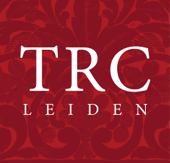The year 2019 marked fifty years since the modern movement for the human rights of LGBTQ+ people began. This movement was kick started by a police raid on a gay bar called The Stonewall Inn in New York City (USA) in 1969. Such raids, along with beatings, blackmail and imprisonment, were not unusual for LGBTQ+ people at the time.
Dress played an important role in the uprising, as police tried to enforce the “three-item rule”: to avoid arrest for impersonation, a person had to wear three items of gender appropriate clothing. During the raid a lesbian dressed in men’s clothing was dragged by police from the bar. She reportedly shouted at the crowd gathering outside, “Why don’t you guys do something?”
The crowd, which included drag queens, transgender sex workers and homeless gay youth, erupted. The police barricaded themselves inside the bar, to be rescued hours later by more police and a fire brigade. For several days, crowds of up to a thousand people gathered in the neighbourhood and fought the police. It was a turning point and a very public declaration that LGBTQ+ people would no longer tolerate unequal treatment.
In the aftermath of Stonewall, community groups were organized and committees formed. The following year (1970), on the anniversary of Stonewall, small marches were held in three US cities (New York City, Los Angeles and Chicago) to call for gay liberation.
Since 1970 thousands of Pride marches and parades have taken place around the world, from São Paulo to Entebbe, Tokyo to Tel Aviv. Much has changed since Stonewall (for more information, click here or here). Same-sex marriages are now legal in 28 countries (the Netherlands was the first country in the world to legalize same-sex marriages in 2001).
Approximately seventy countries have decriminalized homosexuality, including Botswana in 2019. The human rights of transgender people are increasingly recognized. In 2014, for example, India’s Supreme Court ruled that "It is the right of every human being to choose their gender," and recognized transgender and intersex people as a third gender.
The area around The Stonewall Inn in New York is now an official US National Monument, in recognition of its importance to LGBTQ+ history. Commemorations to celebrate Stonewall’s 50th anniversary, such as the World Pride Parade in New York City, were organized around the globe.
 Grey cotton T-shirt with slogan “Gay rights are human rights”, with official Hillary Clinton presidential campaign logo. USA, 2016 (TRC 2016.1914.) For more information, click on the illustration.
Grey cotton T-shirt with slogan “Gay rights are human rights”, with official Hillary Clinton presidential campaign logo. USA, 2016 (TRC 2016.1914.) For more information, click on the illustration.
 Sign in gay tourist information stand Amsterdam. Photo S. Anderson
Sign in gay tourist information stand Amsterdam. Photo S. Anderson

